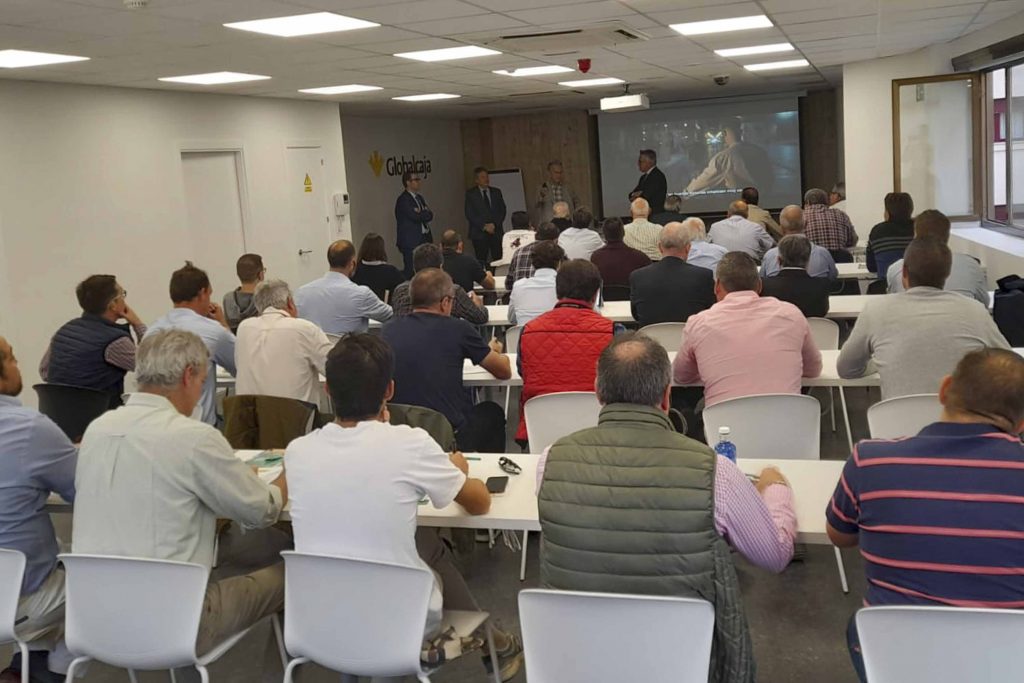Globalcaja, through the area of Rural Bankingis organizing information sessions in different municipalities of Castilla-La Mancha on the Strategic Plan of the Common Agricultural Policy (CAP) 2023-2027, which are being attended by hundreds of farmers and ranchers. The purpose of these informative sessions, which have already taken place in Cuenca, Tomelloso, Alpera, La Roda, Alcázar de San Juan, Villarrubia de los Ojos, Almagro, Houses of Juan Núñez and Porzuna, consists of explaining the main novelties presented by the reform of the CAP, with special emphasis on the different requirements and conditions that farmers must meet to be considered active farmers and be eligible for aid. As explained Alberto Marcilla, Director of Rural Banking, “in order to carry out a correct planning of the sowing, they need advice on the new requirements, which come into force for the 2022-2023 agricultural campaign. The technical complexity involved in the new CAP is such that the Spanish Agricultural Guarantee Fund (FEGA) is publishing different explanatory notes correcting issues related to its practical development, which is generating many doubts and uncertainty for farmers who must decide how to plan their plantings this fall.” With these conferences, as Marcilla points out, it becomes clear that Globalcaja is much more than a bank. “It is not the same to say that you support the agri-food sector, than to organize this type of initiative at a time of maximum interest. With a 30% PAC market share and 46% in agricultural insurance, we are leaders in Rural Banking. But leadership is not just numbers. It is to put our knowledge and specialization at the service of farmers and ranchers and to be able to help them benefit from aid, which is an important source of financing for them”, he assures. In this sense, they are provided with technical and specialized information on how the eco-regimes (EERR) are applied, which are one of the main changes introduced by the new CAP, and on the most outstanding novelties of this reform, such as the different requirements that professionals must meet in order to qualify for aid, basic income payment, redistributive payment, reinforced conditionality, etc. “One of the issues that generates the most doubts among the attendees is everything related to the application of eco regimes (crop rotation with improver species, direct seeding or biodiversity spaces on farmland and spontaneous or sown plant cover and inert plant cover on woody crops), for the economic amount they entail, while these aids are allocated 23% of the direct aid from the CAP”, highlights Alberto Marcilla. These conferences will continue to take place throughout the month of November, in municipalities such as Valdeolivas, Montealegre del Castillo, Mahora, Las Pedroñeras, Mora, Cozar, Cenizate, Tarancón, Las Mesas, Daimiel, La Solana, Ledaña, Mota del Cuervo and San Clementeamong others.
Globalcaja discloses among farmers and ranchers the main novelties of the Strategic Plan of the CAP 2023-2027 so that they can benefit from the aid

